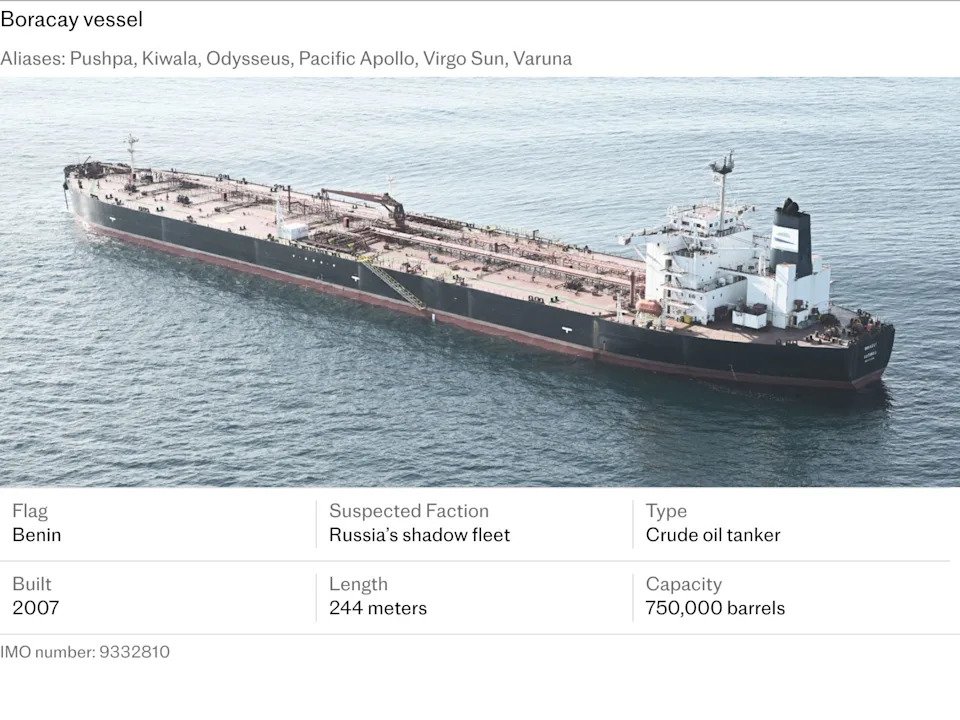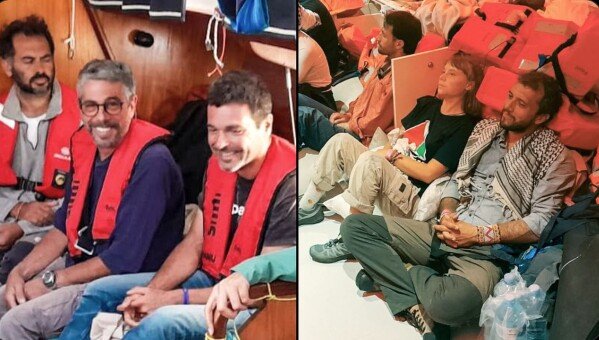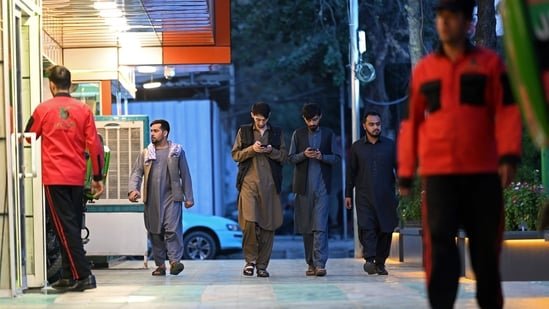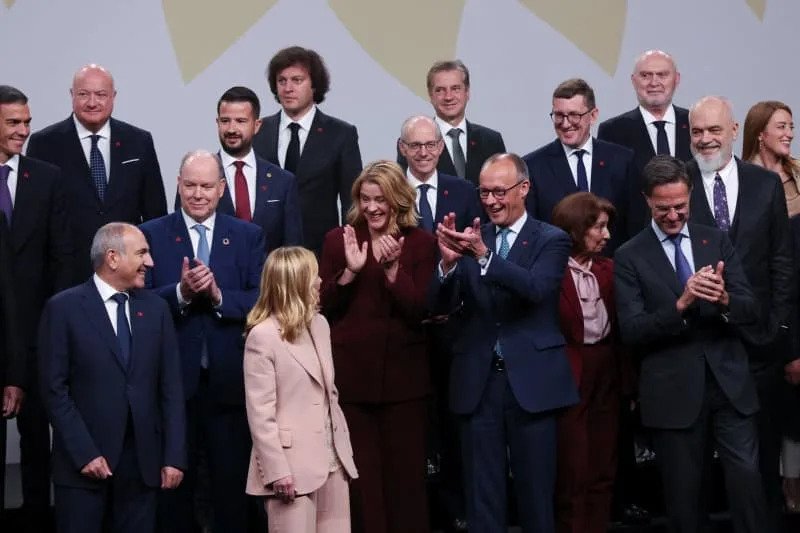TEL AVIV—Israeli forces have intercepted a flotilla of about 40 boats carrying hundreds of pro-Palestinian activists trying to break through a naval blockade and deliver humanitarian aid to the Gaza Strip.

The Israeli navy confronted the Global Sumud Flotilla as it sailed toward them in international waters, roughly 70 nautical miles from the coast of Gaza. Israel’s Ministry of Foreign Affairs had earlier warned the vessels to change course. Just after 11 p.m. local time, the ministry said several boats had already “been safely stopped and their passengers are being transferred to an Israeli port.”
The interception follows a weekslong standoff as the activists closed in on the Gaza coast. Among them are Swedish climate campaigner Greta Thunberg, who was also aboard an earlier flotilla that Israel intercepted in June. A grandson of Nelson Mandela and several European lawmakers are taking part in the latest flotilla.
“Greta and her friends are safe and healthy,” Israel’s foreign ministry said after the navy intercepted the first of the boats. It shared a video of Thunberg being handed a drink and a coat on X.
The flotilla’s organizers called the interception “an illegal attack on unarmed humanitarians in international waters.” It said it was working to account for all participants after losing contact with several boats amid what appeared to be deliberate disruption of their communications systems. There were no initial reports of injuries.
The flotilla had been on high alert since just before dawn Wednesday, when the crew on one of the lead boats, the Alma, detected unlit vessels drifting toward them in the darkness. Witnesses said multiple boats, which they believed belonged to the Israeli navy, harassed them in an apparent final effort to get them to turn back.
Israel’s military didn’t respond to a request for comment on the earlier, predawn incident.
Brazilian activist Thiago Ávila, sailing aboard the Alma, told reporters the navigation system stopped working, and suddenly they couldn’t relay messages to other boats. One vessel steered so close to the Alma’s bow that the captain was forced to swerve sharply to avoid a collision, he said. Ávila said that after circling the Alma for about six minutes, the vessel moved to another boat called Sirius and circled that, too.
As Israeli boats approached the flotilla late Wednesday, activists carried out the protocols they had been practicing for weeks. Videos livestreamed from some of the boats showed them in life vests, sitting in positions meant to be seen as nonthreatening. Some tossed their mobile phones overboard so authorities couldn’t seize them.
Flotilla organizers say their goal is to open a sea corridor to bring aid to Gaza, where almost two years of war have created a desperate humanitarian crisis. Almost all of Gaza’s more than 2 million people have been displaced by the fighting, and a United Nations-backed hunger watchdog says parts of the territory are experiencing famine. Israel says enough aid is getting into Gaza and denies there is a famine.
Israel has controlled the waters around Gaza since 2009, when it declared a naval blockade to stop what it said was a pipeline for weapons and extremists. It has accused flotilla organizers of having links to Hamas, the U.S.-designated terrorist group whose deadly attack on Israel in 2023, which left about 1,200 people dead, sparked the war in Gaza. Participants in the flotilla dismiss the allegations as baseless.
President Trump said this week he was on the verge of a deal to end the war, warning Hamas to accept his peace plan or face even more military pressure from Israel with the full support of Washington. The conflict has already left much of Gaza in ruins and killed more than 66,000 Palestinians, according to local health authorities, who don’t say how many were combatants.
Dozens of boats set sail in recent weeks from ports in Spain, Tunisia, Italy and Greece, converging at various points in the Mediterranean Sea to join the flotilla. About 500 people including activists, politicians and other citizens from 46 countries, are on board the boats. Among them are 24 Americans, including several military veterans, according to the organizers.
The largest contingents come from Italy, Spain and Turkey. Italy and Spain deployed naval vessels to accompany them across international waters in case their citizens needed help. The medical charity Emergency also sent a rescue ship. That vessel and an Italian frigate stopped about 150 nautical miles from the Gaza coast, before the area where the encounter with Israel’s navy took place. The location of the Spanish boat isn’t known.
Israel has repeatedly warned organizers of the flotilla to turn back, saying it would take all necessary measures to prevent them from reaching Gaza. Last week, Italy proposed offloading the aid on Cyprus, from where it would be transferred to the Catholic Church and delivered to Gaza. The activists rejected the offer, saying their mission is to break the blockade and establish a permanent sea corridor.
Late Tuesday, Italian Prime Minister Giorgia Meloni called on the flotilla to stop its advance, saying that doing otherwise posed a risk to fragile peace efforts. Flotilla organizers said Italy was trying to “sabotage” their mission. That response drew a sharp rebuke from Meloni, who said the activists should “spare us the lessons in morality on peace if your goal is escalation.”
The activists say they are sailing peacefully and intercepting them in international waters amounts to piracy. Israel says the flotilla’s clear intention is to breach what it says is a lawful blockade.
The Global Sumud Flotilla is the latest of multiple attempts by activists to break the blockade, all of which were stopped by Israel. In 2010, nine people were killed when Israel intercepted a Turkish ferry leading a flotilla of aid ships.
In a letter shared online before they were intercepted on Wednesday, David Adler, an American aboard the flotilla, said another fleet was already en route to take up the mantle. “The demand for a corridor will outlive this flotilla,” he said. “Our movement only grows.”
Write to Feliz Solomon at feliz.solomon@wsj.com








